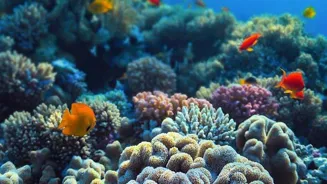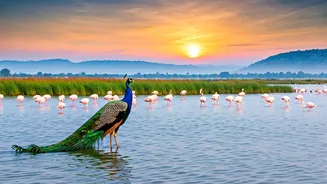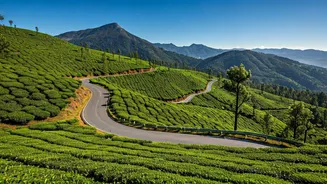Discover India's hidden gem: coral reefs. Learn why they're crucial and how we can save them. Dive in!
India, a land of diverse landscapes and rich culture, also boasts a hidden underwater treasure: coral
reefs. These vibrant ecosystems, often called the "rainforests of the sea," are vital to the health and well-being of our marine environment and the coastal communities that depend on it.
From the Lakshadweep Islands to the Gulf of Mannar, coral reefs are biodiversity hotspots that support a complex web of life. But these delicate ecosystems are under threat, and understanding their importance is the first step towards protecting them.
Coral reefs provide vital ecosystem support in oceans
Coral reefs are formed by tiny animals called coral polyps. These polyps secrete a hard calcium carbonate skeleton, which over time builds up to form the reef structure.
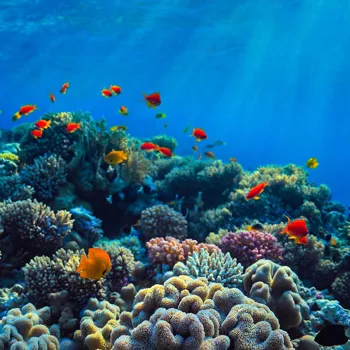
These structures provide shelter, breeding grounds, and feeding areas for a vast array of marine species, including fish, invertebrates, and algae. They are essentially the foundation upon which a whole marine ecosystem thrives.
Protecting these reefs is therefore crucial for maintaining the balance of marine life and the healthy functioning of our oceans.
Coral reefs crucial for fish populations and livelihoods
One of the most significant roles of coral reefs is supporting fisheries. Many commercially important fish species rely on coral reefs for at least part of their life cycle. They provide nursery grounds for juvenile fish, offering protection from predators and a plentiful food supply.
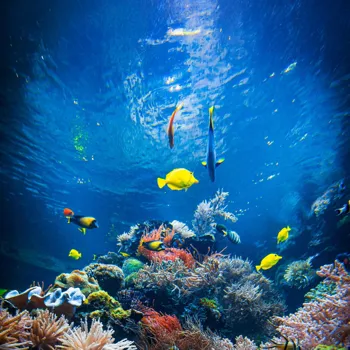
Without healthy coral reefs, fish populations would decline, impacting the livelihoods of fishermen and the food security of coastal communities.
Coral reefs vital for tourism, economy, and conservation
Besides fisheries, coral reefs contribute significantly to tourism. The vibrant colors and diverse marine life attract divers and snorkelers, boosting local economies through tourism revenue.
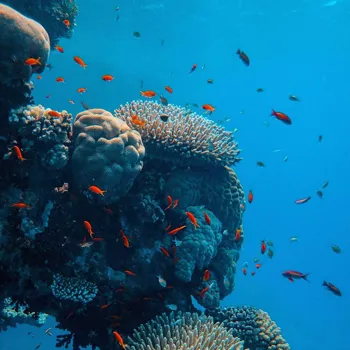
Eco-tourism based on coral reefs provides jobs and income for coastal communities, incentivizing them to protect these valuable resources. Sustainable tourism practices are essential to ensure that tourism does not harm the delicate coral ecosystems.
Coral reefs protect coastlines from erosion and flooding
Furthermore, coral reefs act as natural coastal defenses. They buffer shorelines from waves and storms, reducing erosion and protecting coastal communities from flooding. The complex structure of the reef dissipates wave energy, minimizing the impact of storms and preventing coastal damage.
As sea levels rise due to climate change, the protective role of coral reefs becomes even more critical.
India's coral reefs threatened by pollution, destructive fishing, and climate change
However, India's coral reefs are facing numerous threats, primarily from human activities. Pollution from land-based sources, such as sewage and agricultural runoff, introduces excess nutrients into the water, leading to algal blooms that smother corals.
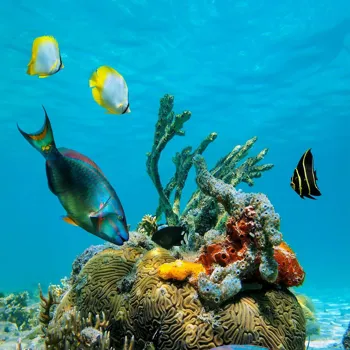
Destructive fishing practices, such as dynamite fishing and bottom trawling, directly damage the reef structure. Climate change is also a major threat, as rising sea temperatures cause coral bleaching, a phenomenon where corals expel the symbiotic algae that give them their color and energy.
Coral reefs crucial for marine ecosystem balance
Coral reefs aren't just pretty underwater landscapes; they're the very foundation of a complex and interconnected food web. They provide shelter and food for a huge variety of marine organisms.
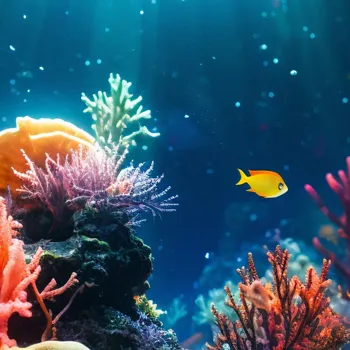
Without coral reefs, many fish, crabs, shrimps, and other creatures would simply have nowhere to live and breed. This would have a cascading effect on the entire marine ecosystem, impacting everything from the smallest plankton to the largest predators.
Think of it like removing the keystone from an arch – the whole structure crumbles.
Healthy coral reefs host diverse marine life
Imagine a bustling underwater city, teeming with life. That's what a healthy coral reef looks like. Tiny fish dart in and out of the coral branches, seeking refuge from larger predators. Sea turtles graze on algae that grow on the reef.
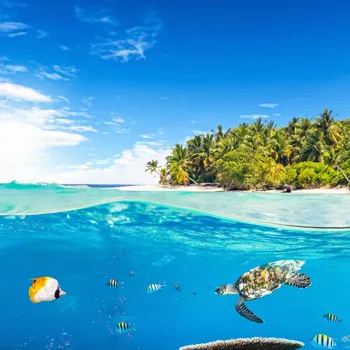
Colorful nudibranchs crawl along the coral surface, feeding on sponges and other invertebrates. All these creatures are interconnected, each playing a vital role in the ecosystem. If the coral reef is damaged or destroyed, this delicate balance is disrupted, and the entire ecosystem suffers.
Interconnected marine habitats support coral reef health
The well-being of coral reefs is also linked to the health of other marine habitats, such as seagrass beds and mangrove forests. These ecosystems are interconnected and support each other. Seagrass beds act as nurseries for many fish species that later migrate to coral reefs.
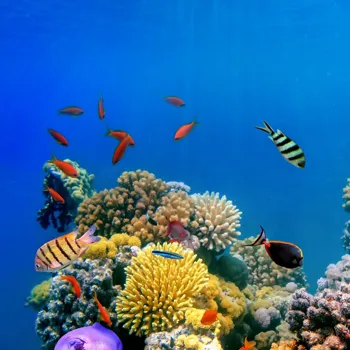
Mangrove forests filter pollutants from the water, protecting coral reefs from sedimentation and nutrient pollution. Protecting all these habitats is essential for maintaining the health and resilience of our marine environment.
Coral reefs boost economies through tourism revenue
While the importance of coral reefs in supporting fisheries is well-known, their economic benefits extend far beyond just providing food. Coral reefs are a major draw for tourism, attracting divers, snorkelers, and nature enthusiasts from around the world.
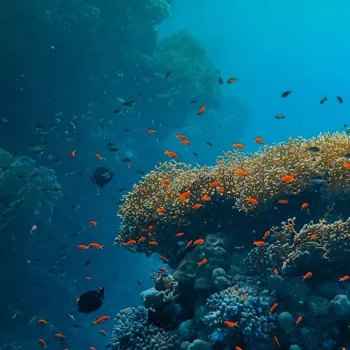
This generates significant revenue for local communities through hotels, restaurants, dive shops, and other tourism-related businesses. In some areas, coral reef tourism is the primary source of income for coastal communities.
Preserving coral reefs boosts local economy and environment
Think about the Lakshadweep Islands, with their pristine beaches and vibrant coral reefs. Tourists flock to these islands to experience the beauty of the underwater world, contributing significantly to the local economy.
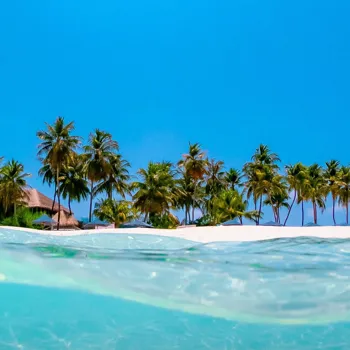
Similarly, the Andaman and Nicobar Islands are known for their diverse marine life, attracting divers and snorkelers from across the globe. By protecting our coral reefs, we're not just preserving the environment; we're also investing in the economic prosperity of coastal communities.
Coral reefs hold promise for pharmaceutical research
Beyond tourism, coral reefs also have potential for pharmaceutical research. Marine organisms found on coral reefs are a rich source of novel compounds that could be used to develop new drugs and treatments for various diseases.
Exploring the biodiversity of coral reefs could lead to breakthroughs in medicine and contribute to the development of new industries. Protecting these ecosystems is therefore essential for unlocking their full potential.
Coral bleaching threatens reefs globally, including India
Coral bleaching is a major threat to coral reefs worldwide, and India is no exception. When water temperatures rise above normal levels, corals become stressed and expel the symbiotic algae that live in their tissues.
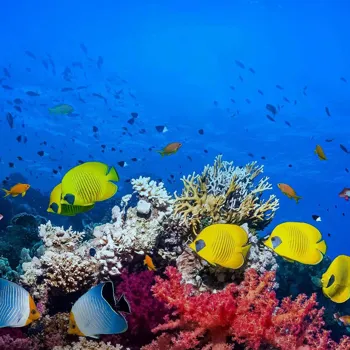
These algae provide corals with food and color, so when they are expelled, the corals turn white, hence the term "bleaching." If bleaching is prolonged, the corals can die.
Coral bleaching due to climate change threatens reefs
Imagine a vibrant coral reef turning into a ghostly white landscape. That's the reality of coral bleaching. Rising sea temperatures due to climate change are the primary cause of coral bleaching events.
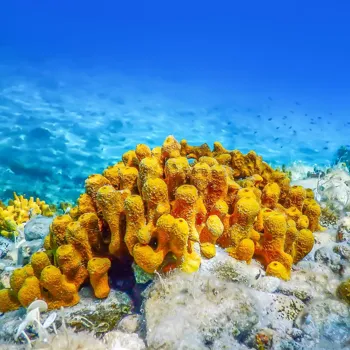
As greenhouse gas emissions continue to increase, ocean temperatures are also rising, putting coral reefs under increasing stress. Addressing climate change is therefore essential for protecting coral reefs from bleaching.
Local stressors worsen coral bleaching, not just climate change
However, climate change isn't the only factor contributing to coral bleaching. Local stressors, such as pollution and overfishing, can also weaken corals and make them more susceptible to bleaching. Reducing these local stressors can help corals withstand the effects of climate change.
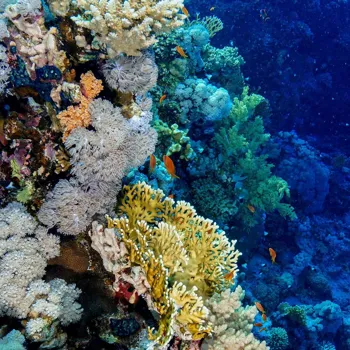
Implementing stricter regulations on pollution and promoting sustainable fishing practices can help build resilience in coral reefs.
Indian govt and orgs work to conserve coral reefs through protection, research, and awareness
Recognizing the importance of coral reefs, the Indian government and various organizations are implementing conservation efforts to protect these valuable ecosystems.
These efforts include establishing marine protected areas, promoting sustainable tourism practices, and conducting research on coral reef health and resilience. Raising awareness among local communities and stakeholders is also crucial for ensuring the long-term success of conservation efforts.
Marine protected areas safeguard coral reefs in India
Marine protected areas (MPAs) are designated areas where human activities are restricted to protect marine ecosystems. These areas provide refuge for coral reefs and allow them to recover from disturbances.
India has several MPAs that include coral reef ecosystems, such as the Gulf of Mannar Marine National Park and the Mahatma Gandhi Marine National Park in the Andaman and Nicobar Islands. Strengthening the management of these MPAs is essential for ensuring their effectiveness.
Promote sustainable tourism to protect coral reefs
In addition to MPAs, promoting sustainable tourism practices can help minimize the impact of tourism on coral reefs.
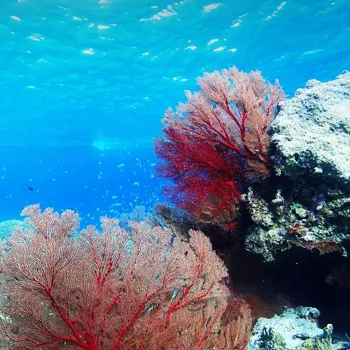
This includes educating tourists about responsible diving and snorkeling practices, encouraging them to support eco-friendly businesses, and ensuring that tourism activities are managed in a way that minimizes disturbance to the reef ecosystem.
Working with local communities to develop sustainable tourism initiatives can also provide them with alternative livelihoods and incentivize them to protect coral reefs.
Efforts needed to protect India's coral reefs involving all stakeholders
Protecting India's coral reefs requires a concerted effort from all stakeholders, including the government, local communities, scientists, and individuals.
By raising awareness about the importance of coral reefs and taking action to reduce the threats they face, we can ensure that these valuable ecosystems continue to thrive for generations to come.
Every small action, from reducing our carbon footprint to supporting sustainable tourism practices, can make a difference.
Reduce pollution, support sustainable practices to protect ocean life
We need to reduce pollution by improving waste management systems and promoting sustainable agricultural practices. This will help reduce the amount of nutrients and pollutants that enter the ocean and harm coral reefs.
We also need to support sustainable fishing practices by implementing regulations to prevent overfishing and destructive fishing methods. This will help maintain healthy fish populations and protect the reef ecosystem.
Protect India's coral reefs for biodiversity, livelihoods, and ocean health
Ultimately, protecting India's coral reefs is not just about preserving a beautiful underwater landscape; it's about safeguarding our marine biodiversity, supporting coastal livelihoods, and ensuring the long-term health of our oceans.
Let's join hands to protect these underwater treasures and secure a sustainable future for our coastal communities. By acting now, we can make a real difference and ensure that future generations can enjoy the beauty and benefits of our coral reefs.
AI Generated Content. Glance/InMobi shall have no liability for the content